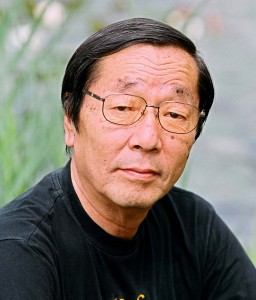education
Masaru Emoto
Commentators have criticized Emoto for insufficient experimental controls and for not sharing enough details of his experiments with the scientific community.[9][17] He has also been criticized for designing his experiments in ways that permit manipulation or human error.[9][18] Biochemist and Director of Microscopy at University College Cork William Reville wrote, “It is very unlikely that there is any reality behind Emoto’s claims.”[9] Reville noted the lack of scientific publication and pointed out that anyone who could demonstrate such phenomena would become immediately famous and probably wealthy.[9]
Writing about Emoto’s ideas in the Skeptical Inquirer, physician Harriet A. Hall concluded that it was “hard to see how anyone could mistake it for science”.[5] In 2003, James Randi published an invitation on his website, offering Emoto to take the One Million Dollar Paranormal Challenge, in which Emoto could have received US$1,000,000 if he had been able to reproduce the experiment under test conditions agreed to by both parties. Randi did not receive a response.[19]
พรปีใหม่ ๒๕๖๕ | Happy New Year 2022
ธรรมะ โดย พระอาจารย์ชยสาโร/ Dhamma by Ajahn Jayasaro
On this day RIP Steve Jobs passed away on Oct 5 2011
Steve Jobs Stanford Commencement Speech 2005
Happy New Year 2018!
Do schools kill creativity? | Sir Ken Robinson
Sir Ken Robinson makes an entertaining and profoundly moving case for creating an education system that nurtures (rather than undermines) creativity.
High-Speed Robots | Amazon
High-Speed Robots Part 1:
Meet BettyBot in “Human Exclusion Zone” Warehouses – The Window
Get a bots’-eye view of the “human exclusion zone” in a massive warehouse where an army of high-tech robots finds and fulfills up to 30,000 orders a day.
High-Speed Robots Part 2:
Kiva Robots in the Workplace & in our E-commerce Economy – The Window
Follow a robot as it works its day job—transforming the world of e-commerce by hustling packages around the giant warehouses that propel the modern economy. New robot minions: Welcome to the team.
What makes a good life? Lessons from the longest study on happiness | Robert Waldinger
What keeps us happy and healthy as we go through life? If you think it’s fame and money, you’re not alone – but, according to psychiatrist Robert Waldinger, you’re mistaken. As the director of 75-year-old study on adult development, Waldinger has unprecedented access to data on true happiness and satisfaction. In this talk, he shares three important lessons learned from the study as well as some practical, old-as-the-hills wisdom on how to build a fulfilling, long life.
Traditional vs Creative Leadership (2009)
Source: John Maeda
